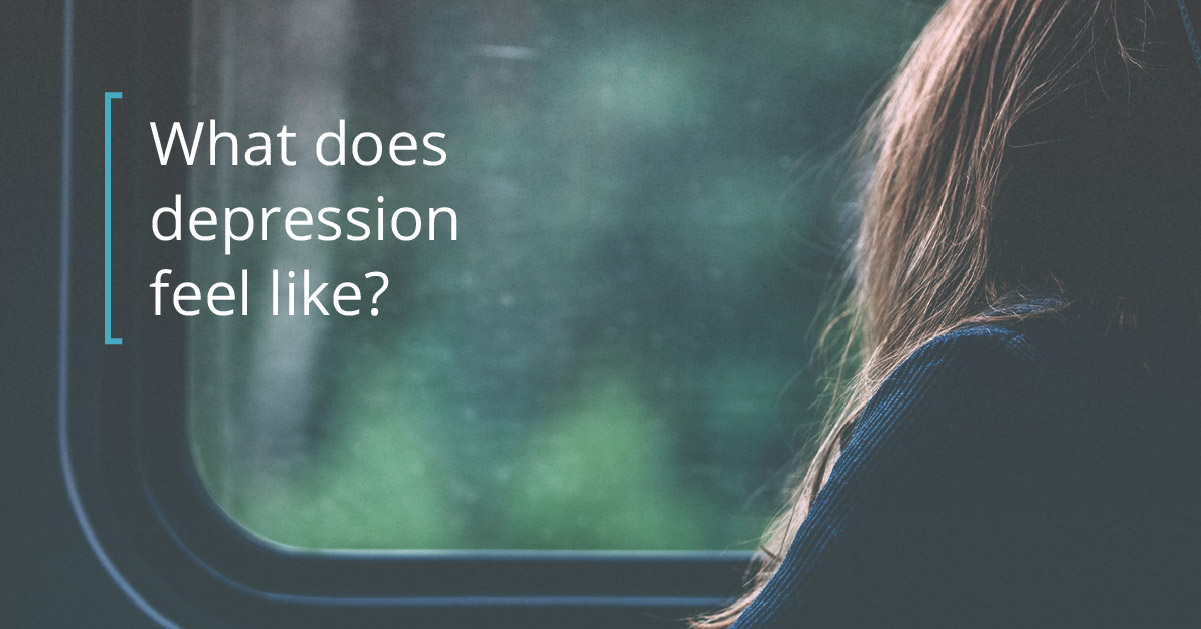 Most people know the telltale signs of depression: a deep, sinking sadness, loss of hope, a bleak outlook on life, and weight and appetite changes. As psychologist Deborah Serani, Psy.D, said, most people also picture a slow-moving individual with sloped shoulders who’s unable to get out of bed.
Most people know the telltale signs of depression: a deep, sinking sadness, loss of hope, a bleak outlook on life, and weight and appetite changes. As psychologist Deborah Serani, Psy.D, said, most people also picture a slow-moving individual with sloped shoulders who’s unable to get out of bed.
While for some people the above is absolutely true, for others, different signs are more prominent and indicative of depression—signs that might surprise you. Below are six symptoms to watch out for.
You have a super short fuse. Irritability is a common sign of depression in men, but it also shows up in women. For example, a client came to psychotherapist Rachel Dubrow, LCSW, to work on her short fuse at work. She’d get so frustrated that she’d cry in front of coworkers, and cause conflict—which made them not want to work with her. She also was exhausted and overwhelmed. She’d start projects but didn’t have the energy to finish them. (She had other symptoms, too, including insomnia, hopelessness, helplessness, low self-esteem and loss of interest.)
Janina Scarlet, Ph.D, a clinical psychologist and founder of Superhero Therapy, worked with a client who had just broken up with her boyfriend because of his cheating. She told Scarlet that she was happy to be rid of him and felt “fine.” A week later she mentioned feeling irritable around her friends. Little things that normally didn’t bother her—a friend chewing gum, a friend texting while talking to her—made her absolutely furious. She started finding people “too annoying” to be with, so she started isolating herself. She also snapped at her parents, stopped working on a school project and lost interest in activities she used to enjoy. As she and Scarlet dug deeper, it turned out that beneath the client’s anger were feelings of grief, hurt and rejection.
Teens at risk for depression also are more likely to be irritable than sad, said Serani, who specializes in treating patients with mood disorders and has authored several books on depression. For instance, Serani worked with a high school senior who was getting into trouble at school and fighting with his parents, who were concerned about his disruptive, disrespectful behavior. He wasn’t completing assignments, and was missing a lot of school.
But when Serani met him, she saw that his restlessness, agitation and irritability were less about being a rude teen, and more about an undiagnosed depressive disorder. In addition to these symptoms, he was struggling with sadness, helplessness, negative thoughts, low confidence, and worries about the future. But “those symptoms weren’t detected because his others were so noticeable,” she said.
Your concentration is shaky. You simply can’t focus like you used to. That’s because depression also affects cognition, leading to forgetfulness and distractibility, Serani said.
Dubrow’s depressed clients tend to notice their difficulty concentrating in two areas: reading and completing tasks. For instance, her clients are unable to finish a chapter or an entire book, which seems to take them much longer than it used to. Because of this, they no longer want to read, even though it was an activity they loved.
In the second scenario, clients try to complete tasks but instead find themselves staring at the computer screen, losing their train of thought or getting distracted in other ways, she said.
You can’t make up your mind. “The cognitive slowness of depression makes thinking and problem solving more difficult than for those who do not have depression,” Serani said. For some of her clients the indecision is intense. They tell Serani that they feel “stuck.” Stuck about what to eat for lunch. Stuck about what to wear. Stuck about what show to watch.
In addition to seemingly small decisions, other clients struggle with major life decisions, she said, such as: “Should I take this job? Should I date this girl? Should I go back to school?” It becomes a “tennis game of should I, or shouldn’t I? It becomes a ruminating style of thinking that interferes with daily life.”
You strive for perfection. Which is related to anxiety. That is, anxiety may serve as a protective emotion against depression, said Scarlet, also author of several books, including Superhero Therapy: Mindfulness Skills to Help Teens and Young Adults Deal with Anxiety, Depression and Trauma. “Sometimes people with depression may feel as if their emotions are ‘out of control’ and therefore may look for things and behaviors they can control, such as cleaning, organizing, or perfecting their work.” Sometimes, you might even struggle with severe anxiety, including panic attacks.
For example, Scarlet was working with a client who had debilitating panic attacks. Together they used mindfulness and cognitive behavioral techniques, including exposure (“helping the client to face their fears in a safe and gradual manner”). Her anxiety subsided. But her depression surged. “We uncovered that her depression began after her father passed away and that in order to avoid her depression, she started trying to keep things ‘organized’ and ‘perfect.’” Getting to the root of this client’s depression and grief, and processing it significantly reduced her depression.
You have random aches or chronic pain. Sometimes, people with depression struggle with headaches or stomachaches. Other times, Serani said, they have full-blown migraines, back or neck pain or chronic pain in their knees or chest.
“The key here is if you’ve been checked out physically and there is no ‘origin’ for your pain, like a slipped disc, a torn ligament, allergies that lead to migraines or gastrointestinal issues.” Inflammation may actually play a pivotal role in depression, and trigger your pain.
You feel utterly empty. Many people with depression experience apathy, “which means not caring about things,” Scarlet said. They may feel like nothing gives them joy or pleasure. In fact, they might not feel anything at all.
As Rosy Saenz-Sierzega, Ph.D, told me in this piece, the lack of feeling is downright terrifying and isolating for her clients. They’re “fearful that they will never again be able to feel.” They “feel as though there is a wall or barrier between them and other people—it’s very lonely behind that wall.”
Author Graeme Cowan called it “terminal numbness”: “I couldn’t laugh, I couldn’t cry, I couldn’t think clearly. My head was in a black cloud and nothing in the outside world had any impact…”
Depression affects all individuals differently. As Serani said, “Depression is not a one-size-fits-all illness.” Again, some struggle with unrelenting sadness, while others feel empty. Some feel angry with everyone, while others fixate on perfection. Depression also lies on a continuum, from mild to severe, Serani said.
If you’re struggling with similar signs and symptoms or simply feel off, seek professional help. Both Dubrow and Serani stressed the importance of getting a medical workup to rule out any underlying medical causes and getting a comprehensive evaluation from a mental health practitioner.
“What I always say is that it is better to get ahead of the symptoms, than be chasing them—especially with depression because the symptoms can be persistent or long standing,” Dubrow said.
Depression is highly treatable. Please don’t hesitate to get help.





